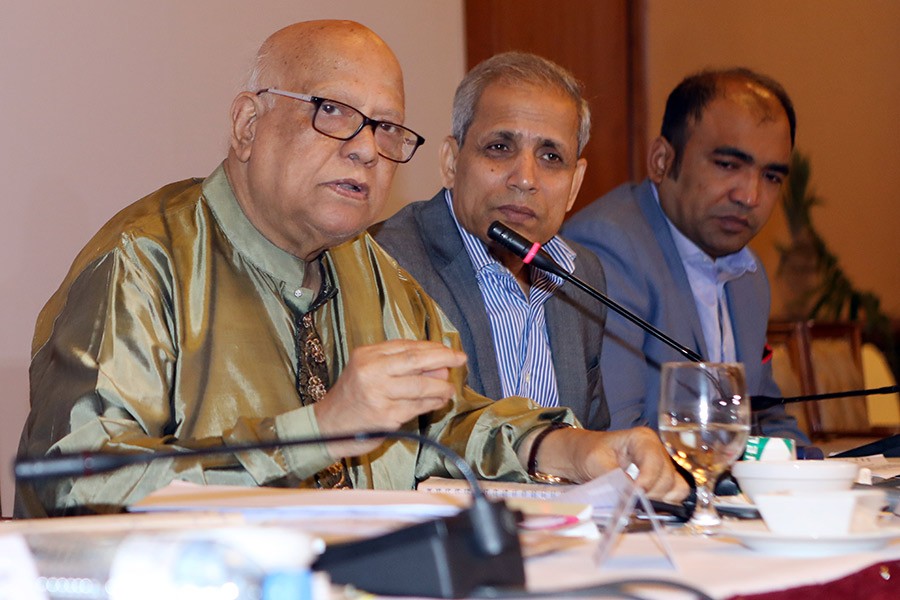Microcredit has failed to play any effective role in alleviating poverty from the society, said Finance Minister AMA Muhith on Thursday.
But there is no denial of the fact that microcredit programme has contributed to women empowerment in the country's rural economy, he added.
Mr Muhith, however, said Dr Muhammad Yunus 'deserved thanks' for introducing the microcredit programme in the country.
He made the comment while speaking at the launching ceremony of a book titled 'Socio-Economics of Bangladesh through the Decades' authored by Palli Karma-Sahayak Foundation (PKSF) Chairman Dr Kazi Kholiquzzaman.
Former Finance Minister M Syeduzzaman chaired the programme held at the PKSF auditorium in the capital.
Nazma Begum, economics professor at Dhaka University, Dr Quazi Mesbahuddin Ahmed, former managing director of PKSF, and Dr Toufic Ahmad Choudhury, director general of Bangladesh Institute of Bank Management, also spoke on the occasion.
The finance minister said a study conducted under the leadership of Kholiquzzaman in 1977 found that in our rural areas, people spent 60 per cent of their total time on various productive activities which taught us to rethink about the rural economy.
Mr Syeduzzaman said all concerned who are working for the country's socio-economic development should read this book.
Terming the book time-befitting, the discussants said though the idea of Sustainable Development Goals (SDGs) came after 2010, but the writer disclosed it long ago.
The 610-page book highlights the development of the rural economy, evolution of social context, dependence on foreign aid, impact of the World Bank and other donors on the economy, questionable effects of microcredit on poverty reduction, and massive economic progress in Bangladesh after 2009.
The book also focused on university's research fund, Small and Medium Enterprise (SME), global economic meltdown, constraints of the country's economy, institutions and human capacity, poverty reduction and people-friendly technology.
The book is a compilation of 26 articles, essays, keynote papers and speeches written over the four decades.


